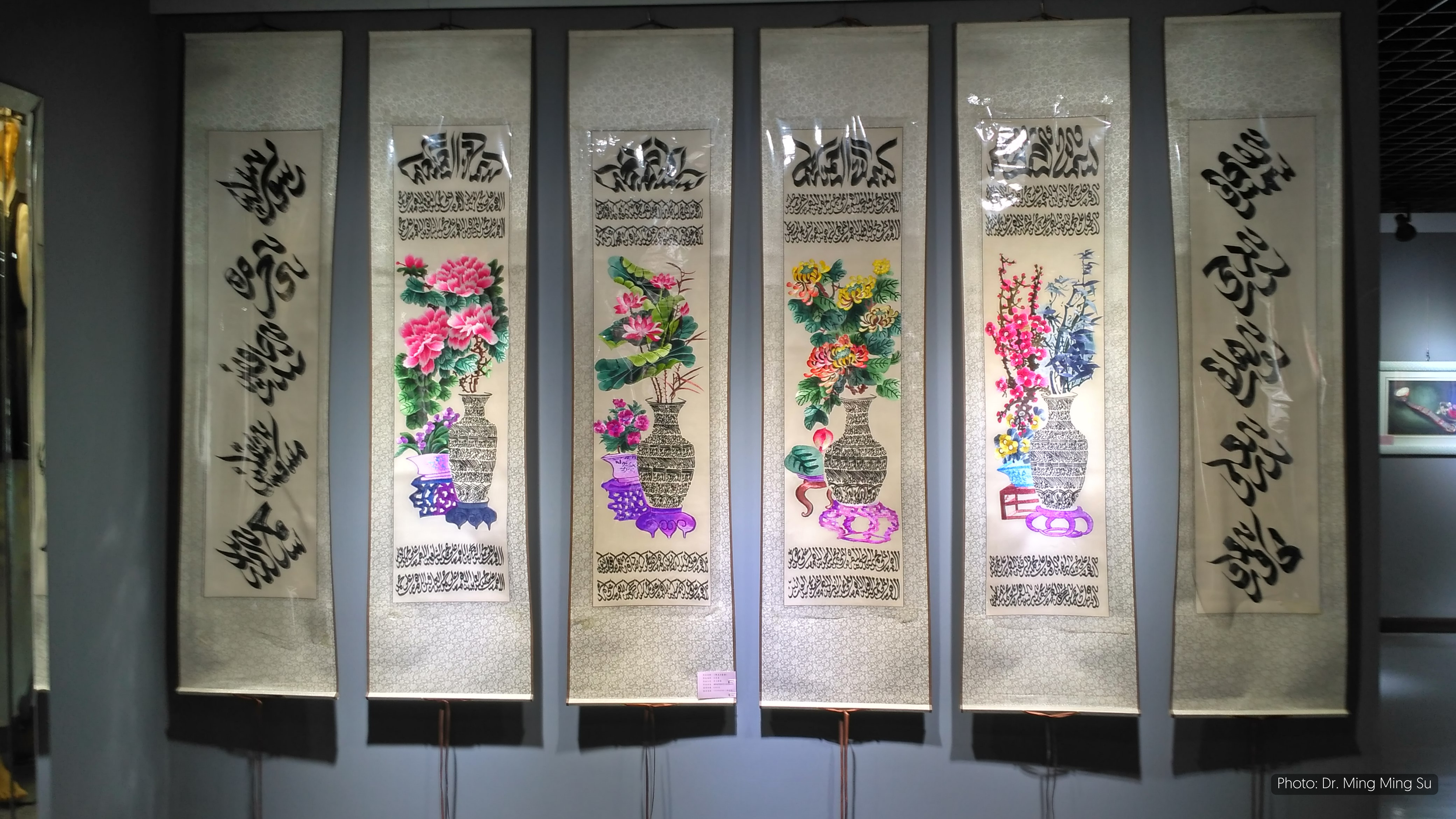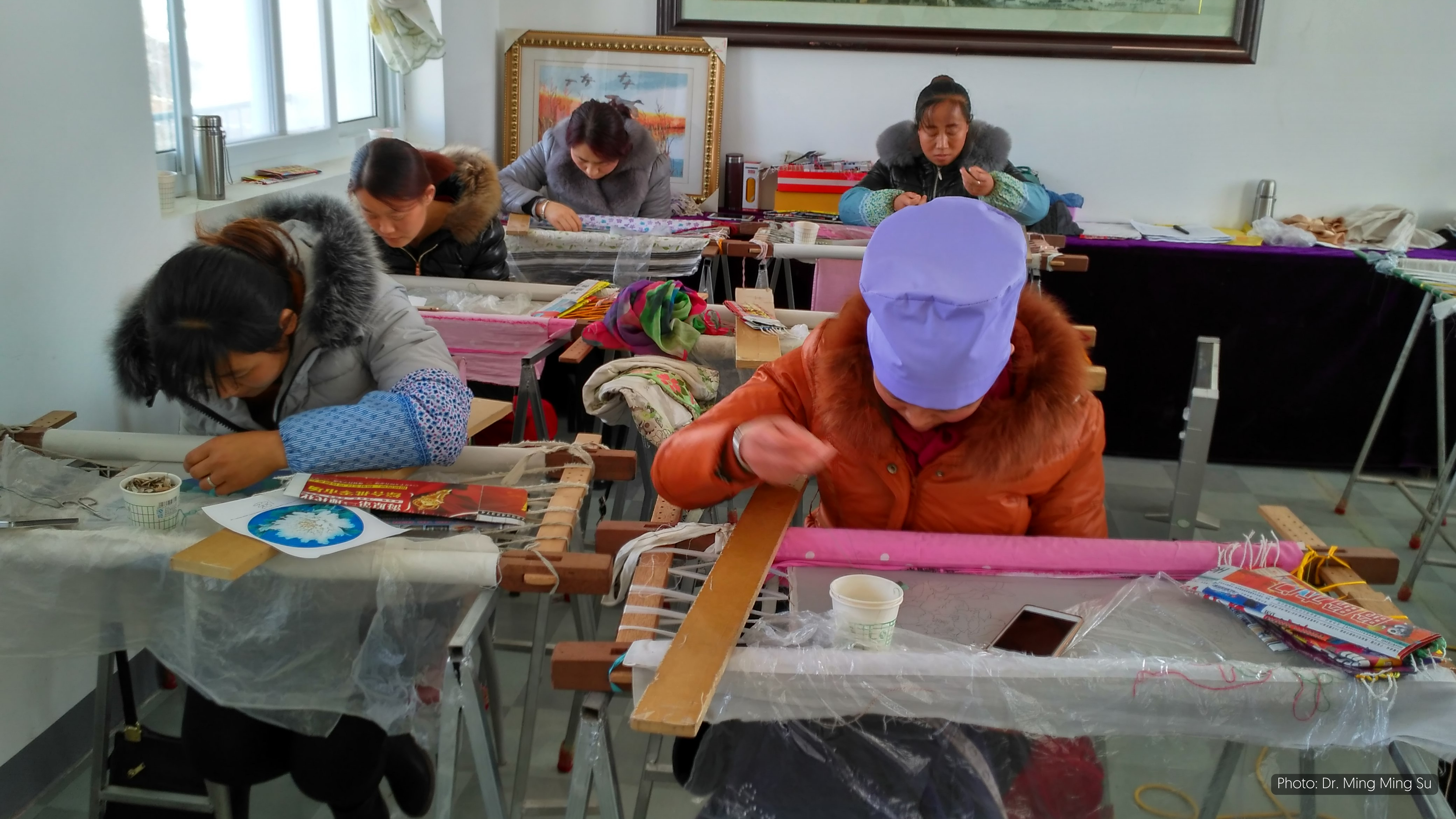Haiyuan County is one of the poorest areas in China. The majority of the population is rural and belongs to a Muslim ethnic group called Hui. Traditionally, the social status of women in this community is low. While the men migrate to the cities to work, the women remain in the village, as they are the ones who have to take care of the family and do the housework.
These rural women are among the most vulnerable groups in society, with less access to resources, livelihood options and education. However, they are the ones who are responsible for preserving and transmitting Hui traditions. The most striking example is Hui embroidery, an exclusively female activity that has been passed down from mother to daughter for centuries. It is considered a symbol of women's intelligence and hard work, and the most skilled practitioners receive great respect and admiration.
In the beginning, women from nearby villages would gather in small cooperatives to work together embroidering garments to which they put to exclusively family use. In 2015, the county government created the Intangible Cultural Heritage Incubation Center (ICHIC) in order to support local cultural expression. This center, not only offered the women's cooperatives a work space and materials, but also began to promote the tourist use of this tradition, as the items could be sold as souvenirs.
Embroidery became one of the main tourist attractions in Haiyuan County and the demand for products expanded dramatically. The cooperatives started recruiting rural women through recruitment drives and by the end of 2018, they had already secured more than 3,000 new recruits. This initiative was financially supported by the local government as a strategy to reduce poverty.

A study published in 2020 set out to assess through interviews the real impact that tourism was having on the empowerment of Hui women, as this sector does not always impact positively on the lives of local people. There are cases where tourism places a double burden on women, as they are expected to work hard both outside the home and in the family environment with little or no financial remuneration.
Although there is little consensus on the definition of empowerment, it is widely accepted that women must have self-determination to get there, as well as access to resources and the freedom to make their own decisions. Empowerment therefore encompasses a wide range of areas, such as the economic status, the social prestige and the education.
All women interviewed recognized that thanks to the cooperative their economic conditions were better:
"I am happy to have an income so I don't need to ask my husband for money. Now I can buy clothes or shoes without asking for my husband's permission."
They also agreed on the importance of encouraging their children to pursue a higher education, so this initiative will have very positive positive impacts on the education of the next generations:
"Education is very important. My daughter is now in high school. I told her that she should study hard and go to college. I will support her education financially."
Although men's status in the family is still higher, women's economic situation gives them greater social recognition and freedom at the family level:
"When I shared my embroidery works with my daughter, she was very impressed and said, "Mom, you are so talented! Can you teach me how to embroider? I feel very happy and proud to hear that!"
"From time to time, there are different kinds of visitors and reporters who come to our workspace to watch us embroider. They take a lot of photos and speak highly of our embroidery works. It's a good recognition for us."

Gender equality and women's empowerment are included in the Sustainable Development Goals. Although much progress has been made, the social exclusion and impoverishment of this group remains particularly noticeable in developing countries. When a tourist buys traditional handicrafts made by a group of women, he or she not only acquires an authentic product of great cultural value, but also contributes to the sustainable development of the region.













